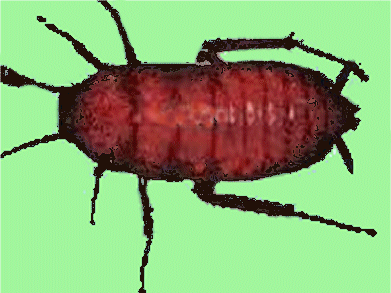Dr Naveed Khan and colleagues from the School of Veterinary Medicine and Science, The University of Nottingham, UK, have discovered powerful antibiotic properties in the brains of cockroaches and locusts which could lead to novel treatments for multi-drug resistant bacterial infections.
The research has identified up to nine different molecules in the insect tissues of the brain and nervous system that were toxic to bacteria. They were able to kill more than 90 % of MRSA (Multi-resistent Staphylococcus aureus) and pathogenic Escherichia coli, without harming human cells.
Research is currently underway to test the potency of these molecules against a variety of emerging superbugs such as Acinetobacter, Pseudomonas, and Burkholderia.
It is unsurprising that insects secrete their own antimicrobials, as they often live in unsanitary and unhygienic environments where they encounter many different types of bacteria they have to pretect themselves from.




